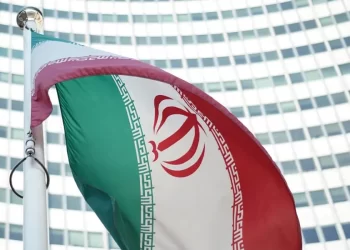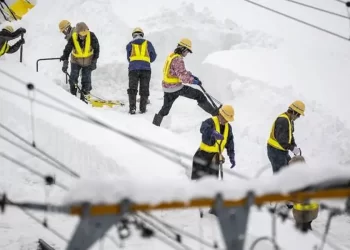DHAKA, Bangladesh (news agencies) — A month ago, a student-led movement ousted Bangladesh’s prime minister, Sheikh Hasina, after weeks of protests and clashes that killed over 600 people and pushed the country to the brink of chaos.
What began as student protests over government jobs became a large-scale revolt against the country’s longest-serving prime minister.
Hasina, 76, fled to India on Aug. 5 as anger against her government swelled. But the ouster triggered more violence. Police went on strike and mobs rampaged across the country until a new interim government led by Nobel Peace Prize laureate Muhammad Yunus was sworn in.
Here is where things stand now, a month after the country was roiled by its worst bloodshed in decades:
Since he was sworn in, Yunus declared that his key tasks would be to restore peace and law and order, fight corruption, and prepare for new elections.
His Cabinet, which includes two student leaders who spearheaded the protests, has fixed its sights on overhauling and reforming Bangladesh’s institutions, from its courts and police to the Election Commission. To do this, it’s also seeking support from the United Nations Development Program.
Reforms have been a key priority as demonstrations against Hasina quickly escalated into anger against her increasingly autocratic rule. Her government had jailed opposition members, curbed independent media and curtailed civil society.
Protesters also accused Hasina’s Awami League of corruption and said that public institutions, including the Election Commission, had been eroded under her 15-year rule.
What Yunus needs is time.
The 2006 Nobel Peace Prize laureate who pioneered microcredit to help impoverished people, especially women, asked for patience in an address to the nation. He said his Cabinet has worked hard to curb the violence and lawlessness that set in after Hasina was ousted.
“I request everyone to be patient,” he said. “It is one of our objectives that public institutions regain public trust.”
Unrest persists. Garment workers demanding better wages have forced about 100 factories to shut down and tensions are simmering, with lingering but widespread anger against Hasina and her Awami League.
Hasina, now in self-imposed exile, is facing murder charges in more than 100 cases. Key officials perceived as close to her resigned after mass protests.
Many cases have also been registered against those associated with Hasina, her party or her government — from former ministers and judges to journalists and even a prominent cricket player. They’ve been attacked, stopped from leaving the country and even jailed. Rights groups have also condemned these lump charges.
Most of the cases are legally weak and politically driven, said Zillur Rahman, executive director of the Center for Governance Studies, a Dhaka-based think tank.
This form of “vigilante justice” has sparked fears that “the system that Hasina perpetuated is still alive, just the victims have changed,” Rahman said.
Within a week of unseating Hasina, the students who drove her out were directing traffic in the capital, Dhaka.
Some schools and universities have since reopened, including Dhaka University, which became the epicenter for the protests against Hasina. But things are not back to normal yet.
Many heads of educational institutions have been forced to resign and in some cases, even though classes have formally restarted, few students are attending them.
Still, many students remain optimistic about the interim government’s potential to bring about real change.









